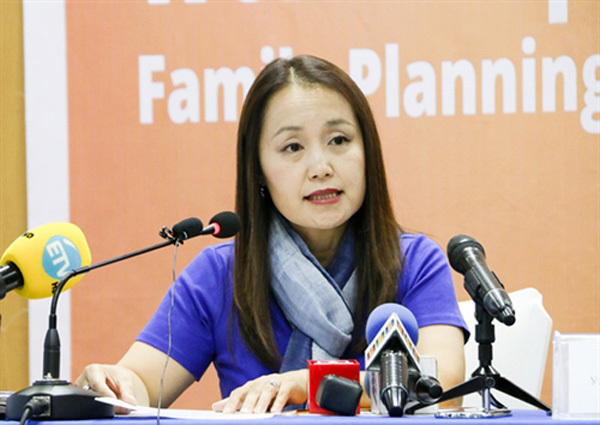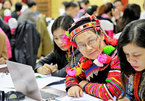 |
| Naomi Kitahara, UNFPA Representative in Vietnam. — Photo vietnamlawmagazine.vn |
How do you assess the results achieved after 10 years’ implementing the Law on Gender Equality in Vietnam, and how have they impacted the country’s gender equality work?
By enacting the gender equality law, Vietnam has developed the sound legal framework to promote gender equality, along with the approval of other key documents such as Decrees, Circulars, the National Strategy on Gender Equality for the 2010-20 period, and other sectoral programs. These documents have paved the way for and leveraged gender equality work and created an enabling environment for all interested stakeholders to join the efforts to promote gender equality in various sectors and in a multi-sectoral manner.
As a result, the role and position of women in society have been improved and strengthened, in particular with regard to the number of women appointed in management positions.
Overall, the Government of Vietnam has made good progress in women empowerment and gender equality, which created equal opportunities for both men and women. So far, statistics showed that 92 per cent of Vietnamese women were literate. Eighty per cent of girls in remote mountainous regions attend schools. Girls account for more than 50 per cent of Vietnamese students, 30 per cent of Master degree holders and 17 per cent of Ph.D degree holders. These figures have in some way shown a gap being narrowed in promotion for gender equality. Vietnam has fulfilled several goals set out in the National Strategy on Gender Equality until 2020, particularly those involving economics and employment, which contributed to the country’s efforts to realise Sustainable Development Goals by 2030.
Does Vietnam’s Law on Gender Equality completely consist with international human rights standards and if not, what are the inconsistencies?
In principle, the Law on Gender Equality is consistent with international human rights standards.
However, there are some provisions of the Law on Gender Equality that are not fully consistent with the Convention on the Elimination of all Forms of Discrimination Against Women (CEDAW) or other treaties (which Vietnam has adopted). These are certain weaknesses or challenges and gender equality issues could be further strengthened through the Law or other legislation.
There are also certain omissions that limit progress on gender equality that could be realised by the Law and the overall legal framework.
Additionally, harmful practices are not yet identified as expected in CEDAW and the UN Sustainable Development Goals’ Indicator 5.3 regarding prohibited acts, including gender-based violence, are not clearly defined and sanctions are not yet applied.
Whether Vietnam has managed to integrate gender issues in its policies and laws and are there any gaps between the Law on Gender Equality and other legal documents currently in force in Vietnam?
Integration of gender equality in formulating legal documents is mentioned in the Law on Gender Equality and the 2015 Law on Laws.
Under the Law on Gender Equality, it is a compulsory requirement for all submitted draft laws/ordinances to mainstream gender. The 2015 Law on Laws gave a provision that the integration of gender equality into the draft law shall be appraised by the Ministry of Justice, and reviewed by the National Assembly Committee on Social Affairs if the legislation is related to gender equality. However, it is unclear how to define when the draft law/ordinance ‘is related to gender equality’. This gap may allow policymakers and drafters to use gender-neutral language and ignore potential adverse gender impacts.
In addition, there are gaps between the Law on Gender Equality and the Law on Laws in terms of gender mainstreaming in legislation. This might lead to the gaps between the Law on Gender Equality and other laws.
In terms of other extremely gender-sensitive national policies such as socio-economic development plans, national highway, national railway, national airport, national target programs (poverty reduction program, for instance), etc., there are no requirements of gender equality mainstreaming by relevant laws.
There are still significant gaps between the Law on Gender Equality and current laws in Vietnam. In the family sector, the Law on Marriage and Family sets different age of marriage for men and women, stating men should be 20 years of age and women 18 years of age. In the 2012 Labor Code and other employment-related laws, the retirement age is set at 55 years for women and 60 years for men. The Labor Code as amended in 2019 by the National Assembly provides for the retirement age of 60 for women and 62 for men. The distinction between men and women would remain.
As the Vietnamese Government is about to revise the Law on Gender Equality in the coming time, could you give some recommendations on how the Law and other state management policies might be revised to further improve gender equality in Vietnam in the future?
In terms of revision of the Law on Gender Equality, firstly, the law should cover “any field” and should not be limited to eight sectors as at present. It should include other areas such as administration of justice, environment, defense and security, religion, and any other fields of life.
Secondly, the terminology should be defined and reviewed to ensure consistency with CEDAW definitions.
Thirdly, information for indirect discrimination should be recognised and included in the Law on Gender Equality.
Fourthly, prohibited acts should be defined and the sanctions for the prohibited acts should be clarified. At the same time, responsibilities related to complaints of gender-based discrimination should be defined.
Finally, harmful acts resulting in gender inequality, including son preference, gender-biased sex selection, sexual harassment, and early or forced marriage, should be defined in a decree amending or superseding Decree 70 of 2008 once it is revised or replaced.
The implementation of decrees and circulars on state management bodies related to budget allocations, gender mainstreaming, and handling administrative violations of the Law on Gender Equality should also be revised.
At the same time, other national laws should also consider certain revisions to address any gender gaps.
The policies on special measures for women who face multiple forms of discrimination such as female immigrants, disabled women, women in mountainous remote and difficult areas, and ethnic minority women, etc., should be further developed. VNS

Enforcement of gender equality law should be enhanced: experts
Vietnam has won international acclaim for its efforts to enhance gender quality, experts have said.